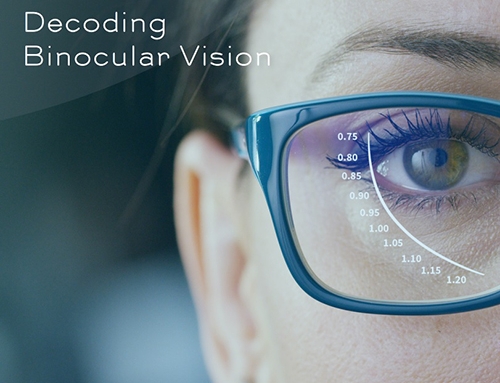Brain Awareness Week is March 12-18, 2018, a time when the National Eye Institute focuses on brain neuropathy and how it impacts vision—because without the complex function of our brains working in conjunction with our eyes, we couldn’t see.
The optic nerve is the pathway that relays all visual information from the retina to your brain, including brightness, color and contrast so that we can make sense of our world visually.
When something goes wrong with the optic nerve, our vision is impacted. The term “optic neuropathy” is what we call damage to the optic nerve that affects our visual system. Nerve cells are very delicate and can be injured in a lot of different ways. Unfortunately, nerve cells don’t typically regenerate once they are significantly damaged, which means vision loss from optic neuropathy could be permanent.
Optic neuropathy has various causes, each with different symptoms. For example, sometimes visual loss is very gradual, other times a patient wakes up one day and suddenly can’t see. Sometimes it impacts color vision, where colors start to seem less bright or washed out. Sometimes it presents inconsistently, with vision problems coming and going. Sometimes it affects just one eye, or sometimes both. If you experience a change in vision, your eye doctor will ask you a series of questions to help to pinpoint the cause during your comprehensive eye exam.
The three most common causes of optic neuropathy, or damage to the optic nerve that causes visual impairment, are:
- Insufficient blood flow to the optic nerve: a condition called ischemia. When blood flow to the nerve is interrupted, the nerve doesn’t get enough oxygen or nutrients, and permanent damage is the result. This typically occurs in people older than age 50.
- Inflammation of the optic nerve: Associated with various diseases, most notably multiple sclerosis. It typically impacts people younger than age 50.
- Glaucoma: A group of diseases associated with an increase in eye fluid pressure that damages the optic nerve and results in vision loss. It typically occurs in people older than age 40. See our January 2018 blog post for in-depth information about glaucoma.
In all of these cases, early detection is key: Immediate treatment may help prevent further vision loss.
There are also genetic or congenital causes for optic neuropathy, which are rare but still a factor for some patients:
- Head trauma or brain injury from sudden impact or an accident can permanently damage the optic nerve. This includes car or truck accidents, blunt force trauma, gunshot wounds and surgical outcomes.
- Toxicity from ingesting specific chemicals including methanol, also known as wood alcohol and sometimes mistaken for ethyl alcohol due to similar smells; Ethylene glycol, a component in antifreeze; ethambutol, a drug used to treat tuberculosis; amiodarone, a drug used to treat abnormal heartbeat; and tobacco exposure, specifically long-term exposure to pipe or cigar smoke.
- Infection or invasion by bacteria, fungus or virus (this is very rare).
- Aneurysms which cause blood vessels in the brain or eye to swell and protrude outward, pressing on the optic nerve and resulting in damage.
- Tumors pressing on and damaging the optic nerve include a variety of cancerous tumors of the head, face and eye, in addition to benign cysts. When these growths press on the optic nerve, it causes inflammation and vision loss that usually progresses as the tumor grows, rather than sudden onset.
- Inflammatory disorders, most commonly sarcoidosis, which cause abnormal masses of inflammatory cells known as granulomas. This typically begins in the lungs, skin or lymph nodes but can progress to the eyes, heart, liver or brain.
- Leber’s hereditary optic neuropathy, a genetic condition passed to children from their mother’s mitochondria. It predominantly affects young men with acute onset of vision loss in one eye, followed within about 8 weeks by the other eye.
- Nutritional optic neuropathy is rare, but severely undernourished patients may experience vision loss. The condition occurred in prisoners during World War II who went without food for several months. However, vision loss associated with vitamin B12 deficiency or pernicious anemia can occur even in well-nourished individuals who can’t absorb enough B12 to support healthy vision.
- Behr’s Syndrome and Berk-Tabatznik Syndrome, both extremely rare.
In summary, if you experience vision loss, eye pain or if you notice that colors seem washed out, you may be suffering from optic neuropathy. If your vision goes dark for a few moments and then returns, you may be experiencing the earliest stages of optic neuropathy.
Always call your optometrist immediately if you notice a sudden change in your vision, as early diagnosis can sometimes mean the difference between temporary and permanent vision loss.
© 2018 Atlanta Eye Care. All rights reserved.










